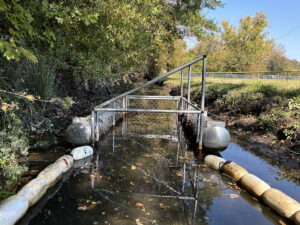News
SCOTUS ruling a setback for clean water
Environmental, Legislative, Sound Rivers
Posted on June 30th, 2022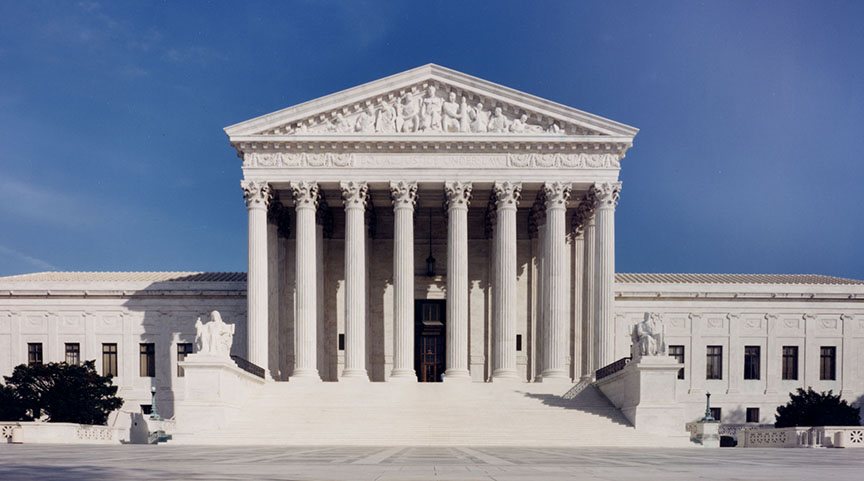
 Friday’s U.S. Supreme Court ruling on an EPA case could ultimately limit the agency’s ability to do its job to address climate change. Read about the decision in this New York Times article.
Friday’s U.S. Supreme Court ruling on an EPA case could ultimately limit the agency’s ability to do its job to address climate change. Read about the decision in this New York Times article.
Sound Rivers staff is extremely disappointed in decision.
Sound Rivers’ Executive Director Heather Deck
“This is deeply, deeply troubling — we need state and federal agencies that are capable of utilizing the best available science and the flexibility to make decisions that protect natural resources and most importantly public health.”
Pamlico-Tar Riverkeeper and Advocacy Program Manager Jill Howell
“In North Carolina, the impacts of climate change are visible daily. We see it in localized flooding that occurs from stronger, wetter, more frequent rain events. We feel it every summer and fall during hurricane season, waiting to see if the next major storm will come through, causing devastation. And we know that the industries contributing to climate change, like the coal industry, not only contribute to the climate crisis but also to the degradation of our waterways. Failure of coal ash ponds across North Carolina, including at Duke’s plant on the Neuse River in Goldsboro, impact water quality, aquatic life and the health of surrounding communities.
“This decision by the Supreme Court significantly limits the ability of an agency — whose sole responsibility is to protect the environment and public health — to do their job and address climate crisis.
“This is a setback for clean water, for healthy communities and, unfortunately, demonstrates that we cannot rely on the Court to act in an impartial, just or nonpartisan manner.”
Neuse Riverkeeper Samantha Krop
“This decision sends a clear message to the public that the highest court does not take seriously the well-being of our planet and communities. Communities on the Neuse and Tar-Pamlico rivers are already experiencing the impacts of climate change, with more frequent fish kills, harmful algal blooms, flooding and resulting pollution of our precious waterways. A decision to limit agency authority to address climate change is a decision to perpetuate these harms and pass off these worsening crises to future generations. Now more than ever we need immediate and decisive action to mitigate climate change, and that requires our regulatory bodies being empowered to do their jobs. This decision sets us back along the path toward achieving a healthy, just and livable planet.”
Related News
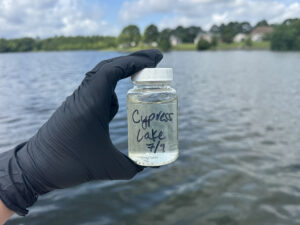
Specialist investigates lake connection to mysterious skin rash
July 10th 2025

Riverkeeper: Central NC flooding part of a much larger issue
July 10th 2025

N.C. Governor vetoes bad rulemaking bill
July 10th 2025

Riverkeeper, program director ‘Growing More than Rain Gardens’
July 10th 2025

Volunteer coordinator goes ‘fishing’
July 10th 2025
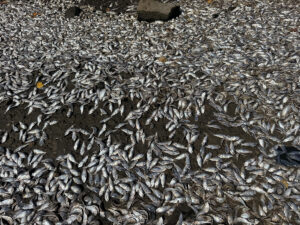
Neuse fish kill expected to extend beyond holiday weekend
July 3rd 2025
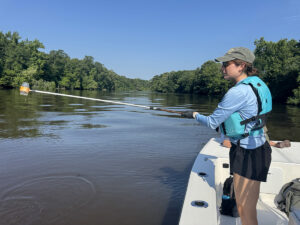
Swim Guide fails prompt Maple Cypress investigation
July 3rd 2025

Riverkeeper, town partners root out source of Smithfield sediment pollution
July 3rd 2025
